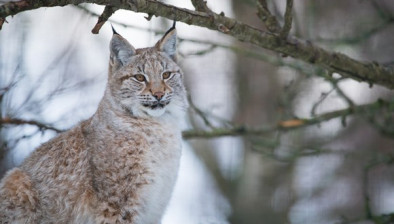Green Angel Syndicate leads £2m investment round in Oban-based Oceanium

Karen Scofield Seal
Oban-based bioscience start-up Oceanium has closed its latest seed funding round worth £2 million led by Green Angel Syndicate and the World Wildlife Fund (WWF).
The seaweed processing and food and material innovation business will use the funds to scale up its proprietary biorefinery and processing model to open up the market for the nascent sustainable seaweed farming industry.
Oceanium’s technical and innovative refinement method has been developed to process seaweed for applications including use in plant-based foods and sustainable packaging material as an alternative to plastic.
Oceanium uses cascade refinery techniques to enable the production of home-compostable packaging materials and climate-friendly food ingredients including protein, fibre and bioactive nutraceuticals from sustainably farmed seaweed.
Seaweed farming is a regenerative form of aquaculture that absorbs CO2 and nitrogen, increases biodiversity, and can generate additional income and livelihoods along coastal regions. Further information on the economic and environmental benefits of sustainable seaweed farming can be found on Oceanium’s website.
The investment round was led by Green Angel Syndicate, the only angel investment syndicate in the UK specialising in the fight against climate change.
WWF is also an anchor investor alongside Scottish Enterprise, Glass Wall Syndicate members, Kingfisher Capital, an UHNW family office and “green” angel investors from Europe, the UK and the US. The round follows early investment from ocean impact VCs Katapult Ocean Ventures and Sky Ocean Ventures. Legal counsel and support for the funding round came from Vialex.
Karen Scofield Seal, Oceanium founder, said: “The calibre of investors in this round of funding highlights the opportunity and obligation we have to create a market for sustainably farmed seaweed and drive systemic change by providing regenerative food and material sources.
“We will continue to work closely with regional and global conservation partners including WWF, Safe Seaweed Coalition and Seaweed for Europe to ensure we lay the best possible foundations for what will be a transformative industry, in terms of both economic, societal and environmental impact.”
Paul Dobbins from WWF, added: “Oceanium’s pioneering expansion of processing capacity for farmed seaweed is an exciting step for the industry. Brought to scale, cultivated seaweed could help achieve conservation goals by providing a nutritious source of food and livestock feed with less land and resource inputs. Their innovative biorefinery process will also help create feedstock for biodegradable packaging alternatives to petroleum-based plastics.”









